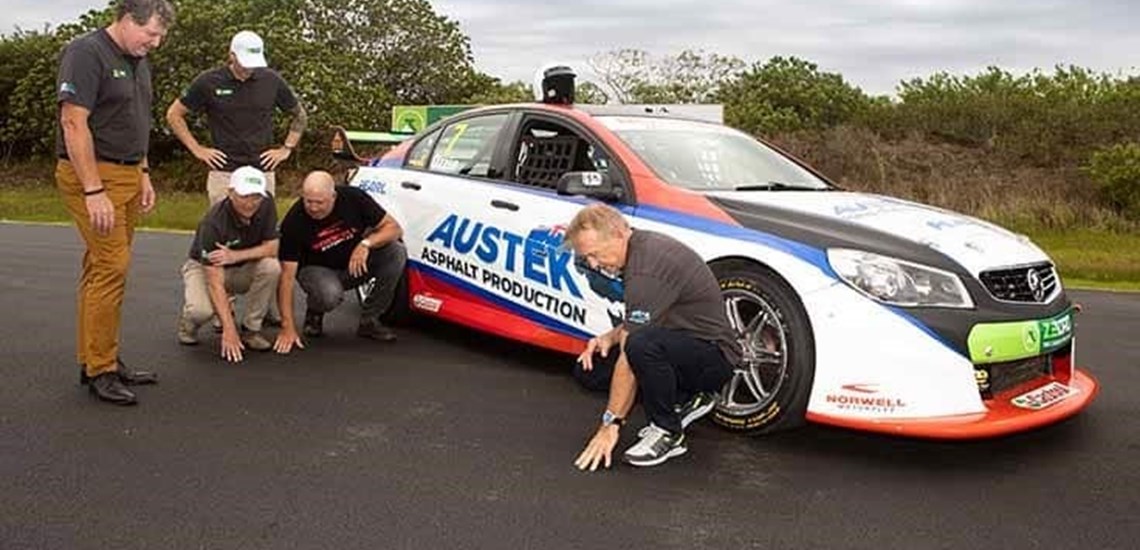Pearl Global has taken a different tack to deal with its pyrolysis char. Instead of chasing the chemicals market or the rubber sector, the company has developed a new asphalt product from its char.
Australian Pyrolysis Firm Pearl Global Goes to the Races
The Carbonphalt, as it is known, makes use of the pyrolysis char to create a high-quality road surface that has been applied to a racetrack in Queensland, Australia.
An asphalt product known as Carbonphalt, made in part with the “char” from thermally treated scrap tires, has been used as paving material at the Norwell Motorplex complex in Queensland, Australia.
The powdered carbon char used an ingredient in Carbonphalt consists of 75 per cent pure carbon and is made during a thermal treatment process for scrap tyres, according to the Australian companies that helped produce and use the product.
Cooperating on the project were Austek Asphalt Production and Pearl Global, who say they have formed a partnership to develop a product that “has fantastic environmental benefits, including the potential recycling of millions of tyres every year that would have ended up in landfill.”
Carbonphalt costs marginally more than conventional asphalt, but offers superior durability, improved stiffness and increased scuffing resistance, say the firms. Approximately 10 vehicle tyres are used for every metric ton of Carbonphalt produced, they add.
The Norwell Motorplex is a race driver training and education facility. Approximately 2,500 metric tons of Carbonphalt will be used to re-pave its 2.2 kilometres (1.35 miles) of track, meaning about 25,000 tyres will be recycled in the process.
Paul Morris, owner of the Norwell Motorplex and a former competitive driver, says, “This new Carbonphalt is a fantastic product and we are grateful to be one of the first beneficiaries of it at the Norwell Motorplex.”
Pearl Global says its thermal manufacturing process at its plant in Stapylton, Australia, breaks down scrap tyres in size from cars to massive mining vehicles to produce carbon char, recyclable steel and a fuel oil product.
Pearl Global’s Gold Coast facility will recycle more than 2 million tyres when running at full capacity. In addition to using the char powder, Austek Asphalt Production estimates it will be able to replace from 1.3 million to 1.6 million litre (343,000 to 422,000 gallons) of diesel fossil fuel with the fuel product made via the tyre recovery process.
A second product the two companies say they can make is called Carbonmastic, which they call another form of asphalt that can be applied in thinner layers from 20 to 50 millimetres (three-quarters of an inch to two inches).
“Pearl’s technology represents a significant advancement on other known tyre recycling processes and is currently focused on processing end of life rubber, including waste tyres,” says Gary Foster, executive chair of Pearl Global.
“We are proud to be working with Pearl Global on a solution to one of the world’s great problems which is the disposal of used tyres,” says Peter Ozoux, managing director of Austek Asphalt. “At the same time, we are producing a better product, which has become vital to every society with transport infrastructure.”




















